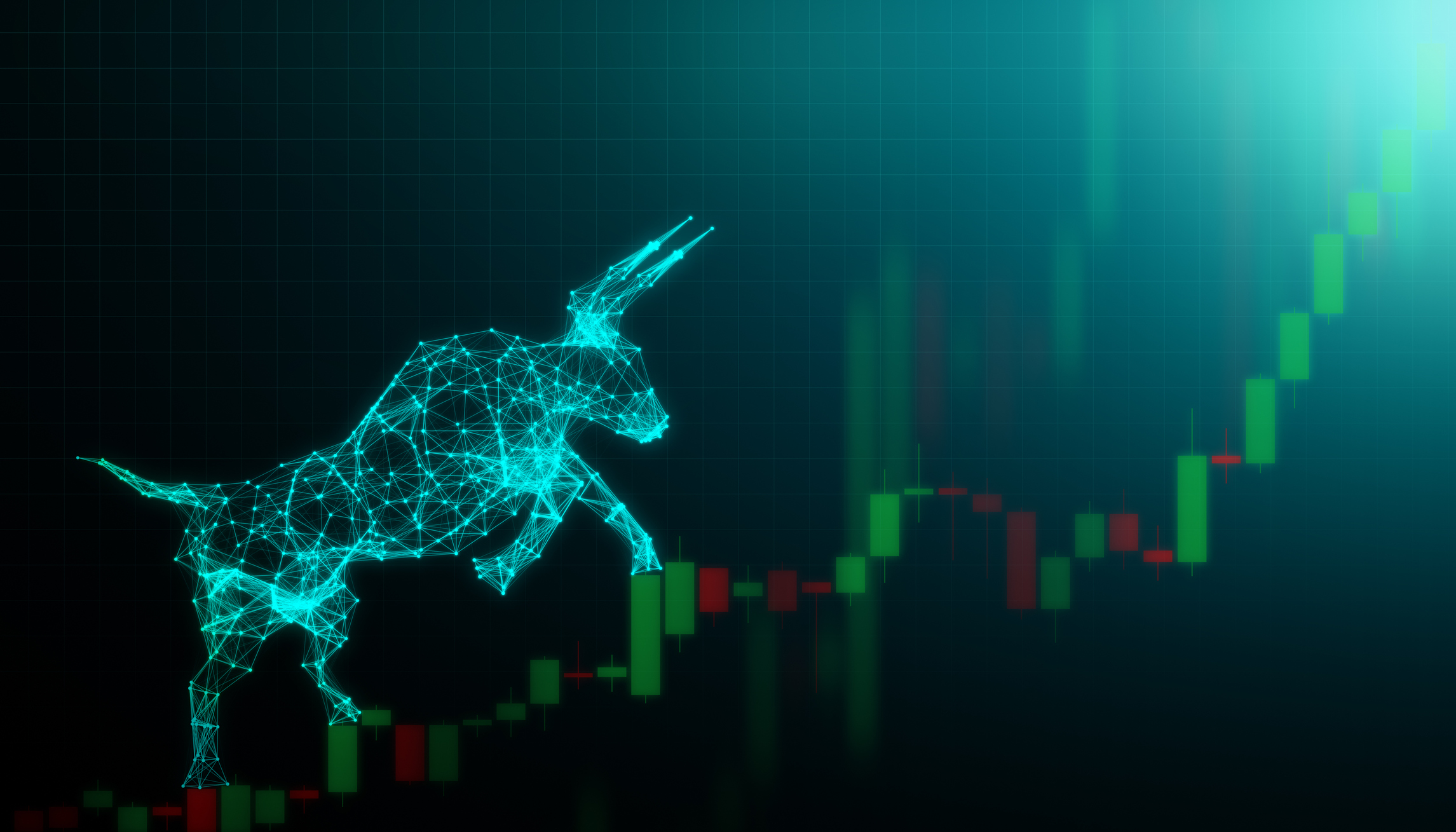Stock Market Today: "Good Trump" Gives Dow 740-Point Boost
Friday's headwind was Tuesday's tailwind, as President Trump's social media posts continue to drag and drive financial markets.



Profit and prosper with the best of Kiplinger's advice on investing, taxes, retirement, personal finance and much more. Delivered daily. Enter your email in the box and click Sign Me Up.
You are now subscribed
Your newsletter sign-up was successful
Want to add more newsletters?
Investors, traders, speculators and now, consumers and deal-makers continue to respond positively to a generally less belligerent Trump administration tone on tariffs and trade.
The major equity indexes have enjoyed historic rallies since April 9, when President Donald Trump announced an initial retreat from his April 2 "Liberation Day" pronouncements.
But they continue to bounce up and down when he sends social media posts on specific subject matter such as China, the European Union and Apple (AAPL) and tariffs and trade.
From just $107.88 $24.99 for Kiplinger Personal Finance
Become a smarter, better informed investor. Subscribe from just $107.88 $24.99, plus get up to 4 Special Issues

Sign up for Kiplinger’s Free Newsletters
Profit and prosper with the best of expert advice on investing, taxes, retirement, personal finance and more - straight to your e-mail.
Profit and prosper with the best of expert advice - straight to your e-mail.
"Our discussions with them are going nowhere!," Trump posted on Truth Social. "Therefore, I am recommending a straight 50% Tariff on the European Union, starting on June 1, 2025. There is no Tariff if the product is built or manufactured in the United States."
Today, the move was "higher" for all 11 S&P 500 sectors and 28 of 30 components of the Dow Jones Industrial Average, helped along by changes in direction from the president with regard to tariffs on the EU and for consumer confidence by one widely followed measure.
President Trump hasn't backed off from his demand that "iPhone's" to be sold in the U.S. must be "manufactured and built in the United States, not India, or anyplace else" under penalty of "a Tariff of at least 25%" payable by Apple to the U.S.
But even AAPL enjoyed a day of broader trade detente, rising 2.5%.
Nvidia (NVDA) got a bigger boost, surging 3.2% after Reuters reported the leader of the AI revolution will introduce a scaled-down Blackwell AI chipset in China in response to U.S. export restrictions on the H20 unit.
Nvidia will report fiscal 2026 first-quarter earnings after the closing bell tomorrow.
We're tracking developments, providing commentary and covering management's conference call at 5 pm ET on our live Nvidia earnings blog.
Tesla (TSLA), meanwhile, rose 6.9% despite the fact that its electric vehicle sales in Europe declined for a fourth consecutive month and the U.S. Congress is passing legislation unfriendly to EVs.
CEO Elon Musk did say over the long Memorial Day weekend that he'll be returning to his role at Tesla – and his other companies – full time.
Beaten-down Nike (NKE), perhaps still riding the wake of its announcement that it will resume selling its products on Amazon.com (AMZN), was No. 1 among the 30 Dow Jones stocks with a gain of 4.7%.
NKE is still down more than 20% year to date.
UnitedHealth Group (UNH), burdened by the uncertainty of a Department of Justice investigation of its Medicare Advantage business on top of an unstable C-suite, was one of only two Dow stocks to close in red with a loss of 0.2%.
UNH is down more than 40% in 2025.
Boeing (BA) was the day's biggest loser, down 0.7%. The struggling aircraft maker has rallied more than 14% this year.
At the closing bell, the blue-chip Dow Jones Industrial Average was up 1.8% to 42,343, the broad-based S&P 500 Index had added 2.1% to 5,921, and the tech-heavy Nasdaq Composite was up 2.5% to 19,199.
A change has come for consumer confidence
The Conference Board said Tuesday morning that its Consumer Confidence Index increased by 12.3 points in May to 98.0 from 85.7 in April. The increase breaks a streak of five consecutive monthly declines.
The Present Situation Index inched up to a three-month high of 135.9, while the Expectations Index jumped 17.4 points to 72.8. All three components of the Expectations Index – business conditions, employment prospects and future income – came up off their April lows.
The Conference Board notes in its press release that the cutoff date for preliminary results was May 19, with about half of the responses collected after the May 12 announcement of a pause on some tariffs on imports from China.
"The rebound was already visible before the May 12 U.S.-China trade deal but gained momentum afterwards," observes Conference Board Senior Economist Stephanie Guichard.
"This rebound is a welcome step in the right direction," caution Wells Fargo economists Tim Quinlan and Jeremiah Kohl, "but like the deal with China it may prove only a temporary reprieve until we get clearer long-term clarity on trade policy."
Quinlan and Kohl note that the May survey period was more "upbeat" vs April, coming before recent posts proposing both higher tariffs on the European Union (EU) and AAPL and then lower tariffs on the EU.
Salesforce buys Informatica
Salesforce (CRM) was up 1.5% on Tuesday after The Wall Street Journal reported and the companies later confirmed it will acquire Informatica (INFA) for $25 per share, or approximately $8 billion in total equity value. INFA jumped 6%.
The WSJ said Salesforce outbid "multiple other strategic and private-equity suitors, including Cloud Software Group (formerly Citrix Systems) and Thoma Bravo" in its effort "to bolster its capabilities in the arms race to put artificial intelligence to work."
Salesforce CEO Marc Benioff said in a statement that the deal "will create the most complete, agent-ready data platform in the industry" and will "significantly strengthen" CRM's position in the $150 billion-plus enterprise data market."
Like Nvidia, Salesforce will take its turn on the earnings calendar after Wednesday's closing bell. One of the best AI stocks to buy right now, CRM is down more than 18% year to date.
Related content
- Kiplinger's Economic Calendar for This Week (May 26-30)
- Best Bond Funds to Buy Now
- 9 Best Tech ETFs to Buy Now
Profit and prosper with the best of Kiplinger's advice on investing, taxes, retirement, personal finance and much more. Delivered daily. Enter your email in the box and click Sign Me Up.

David Dittman is the former managing editor and chief investment strategist of Utility Forecaster, which was named one of "10 investment newsletters to read besides Buffett's" in 2015. A graduate of the University of California, San Diego, and the Villanova University School of Law, and a former stockbroker, David has been working in financial media for more than 20 years.
-
 Is There Such a Thing As a Safe Stock? 17 Safe-Enough Ideas
Is There Such a Thing As a Safe Stock? 17 Safe-Enough IdeasNo stock is completely safe, but we can make educated guesses about which ones are likely to provide smooth sailing.
-
 We're 64 with $4.3 million and can't agree on when to retire.
We're 64 with $4.3 million and can't agree on when to retire.I want to retire now and pay for health insurance until we get Medicare. My wife says we should work 10 more months. Who's right?
-
 Missed an RMD? How to Avoid That (and the Penalty) Next Time
Missed an RMD? How to Avoid That (and the Penalty) Next TimeIf you miss your RMDs, you could face a hefty fine. Here are four ways to stay on top of your payments — and on the right side of the IRS.
-
 Is There Such a Thing As a Safe Stock? 17 Safe-Enough Ideas
Is There Such a Thing As a Safe Stock? 17 Safe-Enough IdeasNo stock is completely safe, but we can make educated guesses about which ones are likely to provide smooth sailing.
-
 Missed Your RMD? 4 Ways to Avoid Doing That Again (and Skip the IRS Penalties), From a Financial Planner
Missed Your RMD? 4 Ways to Avoid Doing That Again (and Skip the IRS Penalties), From a Financial PlannerIf you miss your RMDs, you could face a hefty fine. Here are four ways to stay on top of your payments — and on the right side of the IRS.
-
 What Really Happens in the First 30 Days After Someone Dies (and Where Families Get Stuck)
What Really Happens in the First 30 Days After Someone Dies (and Where Families Get Stuck)The administrative requirements following a death move quickly. This is how to ensure your loved ones won't be plunged into chaos during a time of distress.
-
 AI-Powered Investing in 2026: How Algorithms Will Shape Your Portfolio
AI-Powered Investing in 2026: How Algorithms Will Shape Your PortfolioAI is becoming a standard investing tool, as it helps cut through the noise, personalize portfolios and manage risk. That said, human oversight remains essential. Here's how it all works.
-
 If You'd Put $1,000 Into Caterpillar Stock 20 Years Ago, Here's What You'd Have Today
If You'd Put $1,000 Into Caterpillar Stock 20 Years Ago, Here's What You'd Have TodayCaterpillar stock has been a remarkably resilient market beater for a very long time.
-
 Good Stock Picking Gives This Primecap Odyssey Fund a Lift
Good Stock Picking Gives This Primecap Odyssey Fund a LiftOutsize exposure to an outperforming tech stock and a pair of drugmakers have boosted recent returns for the Primecap Odyssey Growth Fund.
-
 More Tools to Build a Bond Ladder
More Tools to Build a Bond LadderVanguard aims to launch a line of target-maturity corporate bond ETFs.
-
 A Newly Retired Couple With a Portfolio Full of Winners Faced a $50,000 Tax Bill: This Is the Strategy That Helped Save Them
A Newly Retired Couple With a Portfolio Full of Winners Faced a $50,000 Tax Bill: This Is the Strategy That Helped Save ThemLarge unrealized capital gains can create a serious tax headache for retirees with a successful portfolio. A tax-aware long-short strategy can help.